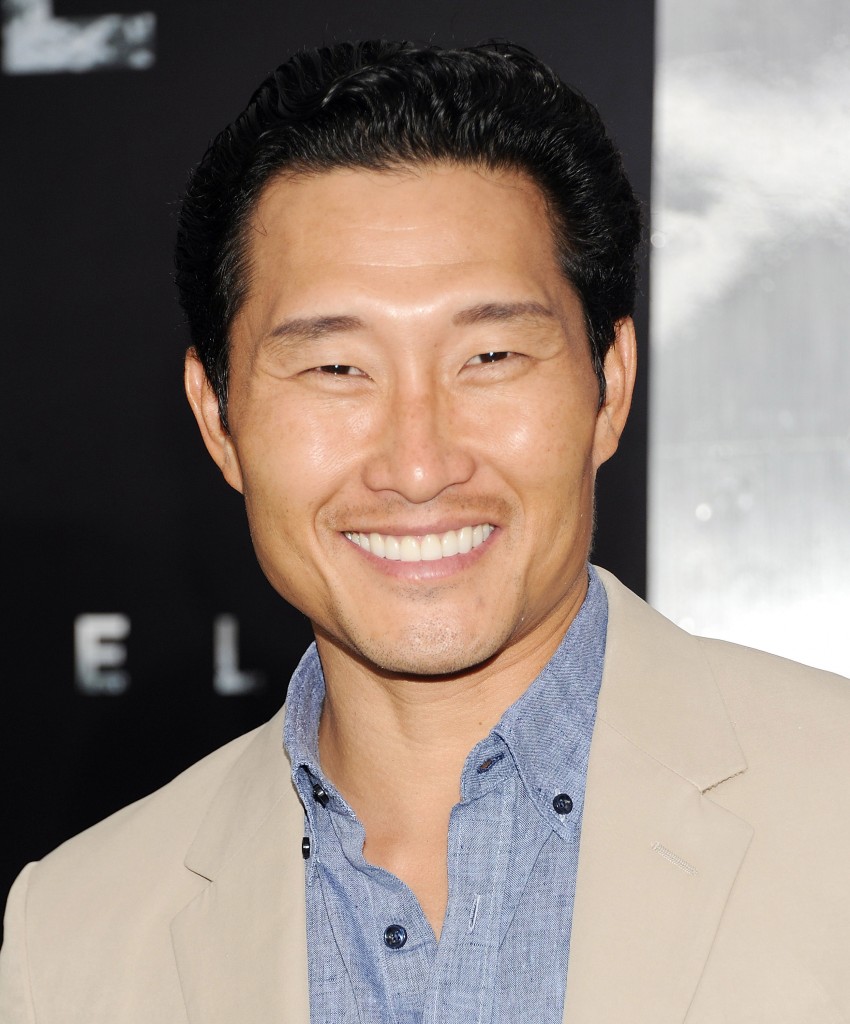- California Assembly OKs highest minimum wage in nation
- S. Korea unveils first graphic cigarette warnings
- US joins with South Korea, Japan in bid to deter North Korea
- LPGA golfer Chun In-gee finally back in action
- S. Korea won’t be top seed in final World Cup qualification round
- US men’s soccer misses 2nd straight Olympics
- US back on track in qualifying with 4-0 win over Guatemala
- High-intensity workout injuries spawn cottage industry
- CDC expands range of Zika mosquitoes into parts of Northeast
- Who knew? ‘The Walking Dead’ is helping families connect
Daniel Dae Kim takes directorial control in ‘Hawaii Five-0′ and beyond

In this June 10, 2013 file photo, actor Daniel Dae Kim attends the “Man Of Steel” world premiere at Alice Tully Hall, in New York. The former Lost star makes his directorial debut with Friday, Feb. 27, 2015, episode of the CBS crime drama, “Hawaii Five-O.” (Photo by Evan Agostini/Invision/AP, File)
LOS ANGELES (AP) — Daniel Dae Kim made an impressively smooth transition from a stalwart husband on “Lost” to dashing crime fighter on “Hawaii Five-0.”
The actor is not done with transformations. Kim has a big-screen role in “Insurgent,” the sequel to sci-fi drama “Divergent” coming in March, and took his first stab at TV directing with Friday’s episode of the CBS police series (9 p.m. EST).
Even more ambitious: He founded a year-old production company to put his stamp on film and TV projects, with two pilots under network consideration for the 2015-16 season.
Acting hasn’t lost its allure, said the handsome Kim, who’s made the cut on People magazine’s “Sexist Men” list. But expanding his role in the industry brings new opportunities that extend beyond deal-making.
Directing, for instance, is “not a means to an end. … I actually believe it informed my work as an actor a great deal. It’s also being part of a creative process from every angle.”
He used his time on “Lost,” the groundbreaking 2004-10 ABC drama, as a tutorial on the directing craft.
“I shadowed directors on ‘Lost,’ but it was not the right show for a new director to cut their teeth on, because it was so elaborate and very secretive in a lot of ways. So I just wanted to watch and learn,” Kim said.
With the CBS series well on its feet in season five, he asked for and was given the chance to get behind the camera. It was a satisfying experience, he said, and one in which he enjoyed the support of his cast mates and the crew — aside from a bit of ribbing.
“I fully expected more hazing than I got. There were a couple of jabs here and there. But none of the, ‘I refuse to come out of my trailer,’” he recalled.
Donning a producer’s hat has the potential to be even more rewarding. As one of the rare Asian-American actors to play lead roles, Kim said, he is intent on helping other minorities get their own shot.
In Los Angeles to work on postproduction for his “Hawaii Five-0″ episode and tend to other projects, Kim was relaxed and thoughtful as he put his success — and his take on the industry — in perspective.
“The fact that I’ve been able to do two shows, back-to-back, is not something every actor gets to say,” said Kim, who has lived in Hawaii with his wife, Mia, and their two children since “Lost” filmed there.
But his role in “Insurgent” is because a “young, gifted author (Veronica Roth) had the foresight to write an Asian-American male character in her book. I emphasize that because it doesn’t always happen. If it’s not part of (the original work), very rarely does it happen” during casting, Kim said.
“These are not complaints; they’re more state-of-the-nation comments,” he said.
The projects being developed by his company, 3AD, all “feature minority participants at the most fundamental levels, whether as writers or lead actors or creators,” Kim said. “I’m not doing this for charity: Everyone is extremely talented, and they’re stories that deserve to be told by these people.”
Kim, 46, was a year old when his physician-father and mother emigrated in the 1960s from South Korea and settled on the East Coast. He was raised in New York and Pennsylvania, graduated from Haverford College and earned a master’s degree from New York University’s Tisch School of the Arts.
His parents “made a hard, huge move so we could have the opportunity for a great life,” Kim said, and he encountered his own challenges growing up.
“The need for expression stemmed from being a minority in this country and being singled out for being different,” he said. “And I think I felt stifled in some ways when I was younger, that my voice wasn’t behind heard the same way as others. And that led me to finding a means of expression.”
Whether he’s on-screen or directing or producing, he said, “it’s all about that.”















